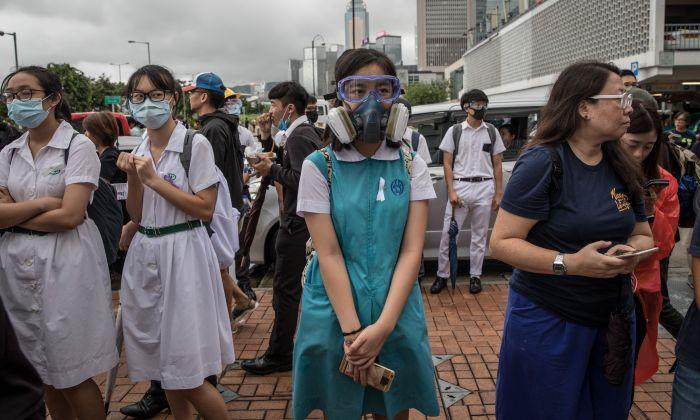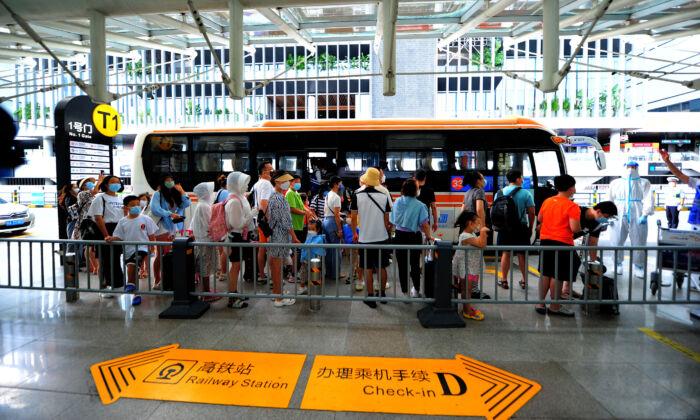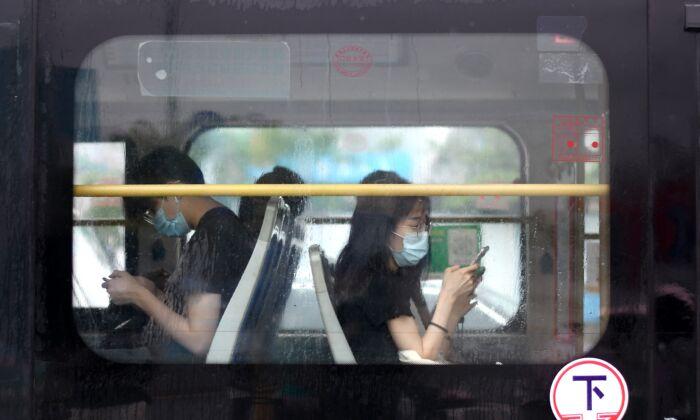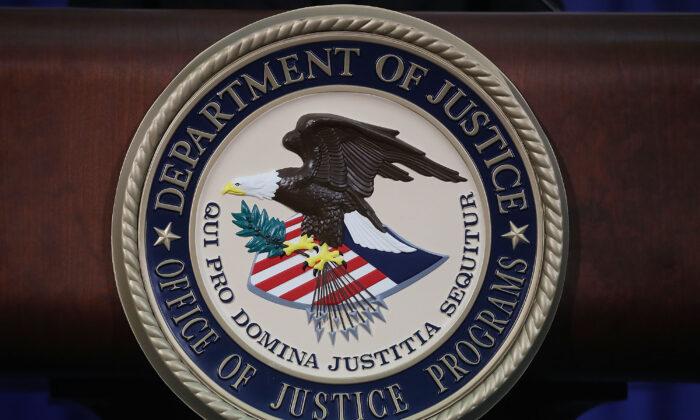A secondary school in Hong Kong has launched a “credit” system similar to those in mainland China that reward and punish students based on their behavior.
After protests from current students and alumnae at
St. Antonius Girls’ College, a Catholic secondary school in the Yau Tong area of Kowloon, the principal on Sept. 4 agreed to withdraw the system and apologized to students.
“The young generation has their opinions. I’ll try to seek their understanding through more and more channels in the future,” Principal Chu Pui Lui
told students who had gathered at the school gym early that morning to protest the school decision, according to a report by local media HK01.
Chu added that the students had the right to protest.
“Please don’t doubt that we can do better,” Chu told students, saying that she wished to build trust with them.
Scoring System
With a student body of roughly 780 students, St. Antonius Girls’ College teaches both middle school and high school.When classes began on Sept. 2, the school announced that it had launched a so-called “conduct scoring” system. Each student is given 100 points to start with. It is then adjusted throughout the school year, depending on the student’s conduct—points are added for good behavior but deducted for bad behavior.
Students who have less than 50 points by the end of the school year must be held back and repeat a year.
Points would be deducted for being late or absent; not wearing the school uniform; using cellphones during class; and sneaking out of school to hang out with friends.
Students would also be penalized for their behavior outside of school. If a student “behaved poorly,” 15 points would be deducted—though the school did not specify what constituted poor behavior. If a student is
absent from class without a doctor’s note, 5 points will be deducted for each class the student has missed in the day.
A student who consistently hands in homework on time and has no absences or latenesses for class during an entire term would receive two points.
Students whose test scores improve from previous tests will also earn points. Students selected to represent the school in any citywide or international competition would also earn extra points.
Student Protest
At about 7:30 a.m. local time on Sept. 4, hundreds of young girls dressed in their school uniform gathered at the school gym to protest the system. Meanwhile, about 150 alumnae stood outside the school building and joined hands in protest.A student surnamed Yik
told HK01: “You will lose a lot of points just for doing one tiny thing wrong.” Yik complained that according to the school regulations, even forgetting to bring a pencil would result in losing a point.
At the same time, the school encouraged students to join athletics and earn more points. “But not everyone has the talent for sports,” Yi said.
An alumnae surnamed To told HK01 that the old evaluation system, which gave students warnings and punishment if they committed serious wrongdoing, was sufficient. “This new conduct scoring has shortcomings,” To said.
Hongkongers’ Concerns
The students’ strong reaction against the scoring system reflects a broader concern in Hong Kong that the city would gradually adopt more measures similar to those in mainland China. The territory reverted from British to Chinese rule in 1997, though it maintains a separate government, judiciary, and economic system from mainland China.On the popular online forum
Lihkg.com, netizens spread the news about the St. Antonius Girls’ College scoring system as “the first case to launch mainland China’s standard.”
The Chinese regime launched a nationwide
social credit system in 2014, whereby all citizens and companies operating in the country will be assigned a score based on their “trustworthiness.”
Individuals who engage in “untrustworthy” behavior, such as jaywalking or littering, get points docked. Those with low scores are banned from taking public transportation, booking hotels, and other restrictions.
So far, the system has only been implemented in the mainland. But in the Chinese regime’s new policy
launched in August for turning Shenzhen City—which borders Hong Kong—into a world hub, as well as a Guangdong
provincial government plan launched in July, authorities made reference to a “credit system” linking Hong Kong and Macau to nearby Guangdong Province. But Hong Kong officials denied that plans were in place to establish such a system.
Yeung Manchun, a Hong Kong columnist, published a
commentary on Medium.com July 10, in which he pointed out that the social credit system would “destroy all systems in Hong Kong, as well as the rights of Hongkongers.”
Yeung explained that China’s social credit system encourages people to report on each other’s behaviors, which could result in Hongkongers becoming afraid of protesting the government and having a chilling effect on freedom of expression.






Friends Read Free